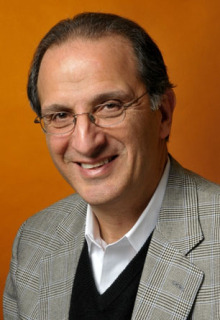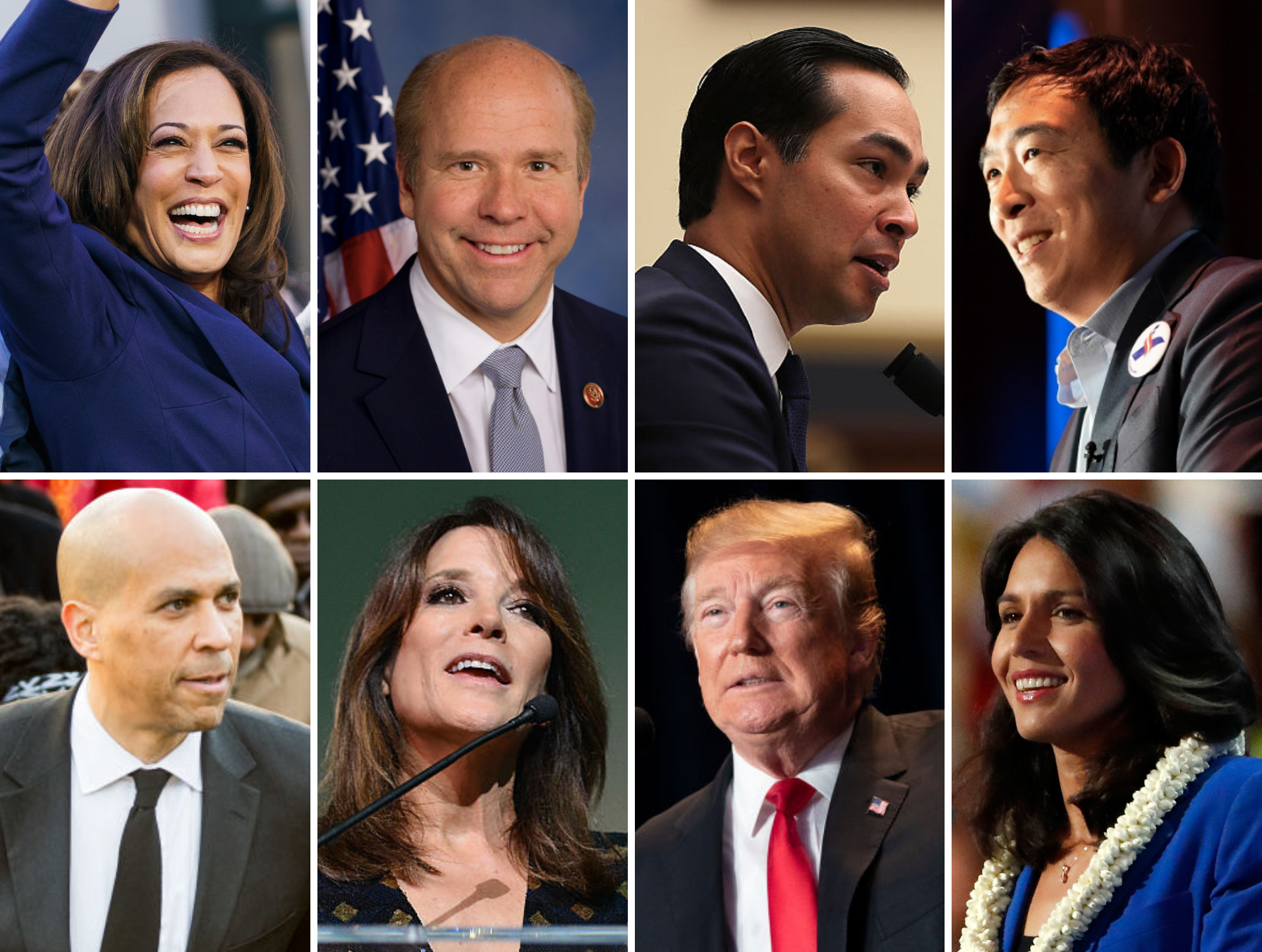www.aljazeerah.info
Opinion Editorials, March 2019
Archives
Mission & Name
Conflict Terminology
Editorials
Gaza Holocaust
Gulf War
Isdood
Islam
News
News Photos
Opinion Editorials
US Foreign Policy (Dr. El-Najjar's Articles)
www.aljazeerah.info
Challenging the US Presidential Candidates to Discuss the Middle East in Iowa, 2020 By James J Zogby Al-Jazeerah, CCUN, March 30, 2019 |
 |
 |
|
I'm writing from Iowa where I've been speaking to audiences of
activists and helping to organize "Concerned Iowans for Middle East
Peace (CIMEP)" – a coalition committed to Palestinian human rights and a
just Middle East peace. If you care about politics and policy, Iowa's
the place to be.
It's not just that Iowa is the first state to
vote in the presidential election cycle. It's because of the way
politics are done in this state and the seriousness with which Iowans
engage in this process.
When they vote, Iowans don't pull a
lever or fill out a paper ballot, they caucus. On election day, across
the state, hundreds of thousands of voters gather in school auditoriums,
other public buildings, and even living rooms. At the appointed time,
they break into groups indicating their preferred presidential
candidate. If some candidates only have a few individuals who caucus for
them – not enough to register – they may decide to join another
candidate's caucus group. Similarly, members of larger caucuses may try
to recruit supporters from the smaller ones, in order to boost the share
their candidate receives in the overall vote. When this process is over,
the numbers are tallied and those candidates who have the largest number
of supporters win the right to send a few delegates to the next round of
voting. This same process continues up the ladder from these local
caucuses, to the county caucus, to the congressional district, and
finally to a state convention – where delegates to the national
convention are finally selected.
An additional factor that makes
the Iowa experience so interesting is that after the votes for president
are tallied, the delegates then debate and vote on issues they want to
send to the state convention to be inserted in the state party's
political platform. It's a complicated and involved process, to be sure,
but it's also exciting and an example of real democracy at work. Iowans
don't vote passively; they debate with their neighbors and try to win
over other voters to caucus for their chosen candidate. They're aren't
just voters, they're activists and advocates.
Last year, I served
on a reform commission created by the national Democratic Party. There
were some who wanted to end the Iowa caucuses. They argued that it
required too great a time commitment (and therefore excluded people
whose work or disability make it difficult for them to participate) or
that Iowa's population wasn't diverse enough and didn't reflect the rest
of the United States.
Those of us who support Iowa and respect
its unique process pushed back. We noted that though small in number,
Iowa’s diverse communities take their responsibilities seriously and
engage fully in the caucuses and the debates leading up to them. In the
end, Iowa kept its caucuses, but some improvements were made to allow
for broader participation by more voters.
There's another
reason why I love the personal, hands-on nature of Iowa's politics. It
isn't enough for Iowans to see their candidates in a TV ad or at a big
rally. They want to meet them, look them in the eye, take their measure
of them, and then ask them tough questions. This is what Iowans do.
Because, after Iowa, the rest of the election season is a blur, the
rest of the country doesn't have the same opportunity to meet and
question the candidates. It's impossible to do that kind of "up close
and personal" politics in all 50 states, so Iowans get to raise the
issues and ask the questions that the rest of America needs to have
answered. And on most topics, Iowans have done their homework and can be
quite sophisticated in how they approach the candidates. Just yesterday,
for example, one member of CIMEP was at a small gathering with Beto
O'Rourke – the newest Democrat to enter the presidential contest. He was
able to frame a detailed and thoughtful question, asking what O'Rourke
would do as president about the racist policies of Israeli Prime
Minister Netanyahu and what would he do to protect the human rights of
Palestinians under occupation. O'Rourke gave a fairly good response
condemning Netanyahu and committing to Palestinian rights. If our work
goes as planned, this isn't the last time O'Rourke, and other
candidates, will get these questions – since our plan is to continue to
drill down and insure that the rights of the Palestinians and other
Middle East peace issues are center stage in this election.
It is important that an effort like CIMEP be organized, because if it
didn't exist, the questions its members will ask might not enter the
discussion. Candidates might not be called to account for their position
on the Arab-Israeli conflict during the entire presidential
contest. Challenging the candidates is so important because in election
after election we have chosen a president who has never had to state
what they would do to address Israel/Palestine or, for that matter, most
other Middle East-related issues. This is the state of affairs we are
determined to bring to an end. We do so because in the past 4 decades,
since the end of the Vietnam War, the US has spent more money, shipped
more weapons, sent more troops, fought more wars, lost more lives and
has more at stake in the Middle East than any other area of the world –
and yet we repeatedly elect presidents without knowing how they will
address that region. It is, therefore, imperative that those who seek to
lead the United States in the next four years be asked to engage in an
open conversation with the American people about how they intend to
conduct Middle East policy.
My thanks, therefore, goes to Iowa’s
peace activists who hosted me and who are organizing to engage in a
respectful and desperately needed conversation about the Middle East in
this presidential race.
***
Share the link of this article with your facebook friends
|
|
|
|
||
|
||||||


